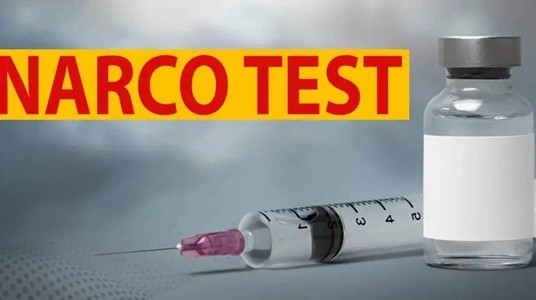Supreme Court Bars Forced Narco-Tests Without Consent
Supreme Court Bars Forced Narco-Tests Without Consent
Why in the News?
The Supreme Court set aside a Patna High Court order allowing narco-analysis tests without consent in a dowry harassment case. The court reaffirmed that such tests violate Articles 20(3) and 21 of the Indian Constitution. This Supreme Court judgment on narco-tests emphasizes the constitutional validity of these investigative techniques and addresses the question: is narco test legal in India? The ruling also clarifies the narco test meaning and its implications for criminal investigations.
About Supreme Court Ruling on Narco-Tests:
- The Supreme Court declared that narco-analysis test cannot be conducted without the consent of the accused or witnesses. This ruling clarifies the narco test full form (narcoanalysis test) and its legal status in India, emphasizing the importance of free consent in such procedures.
- A 2023 Patna High Court order permitting such involuntary administration of narco tests was struck down.
- The Court held such tests violate the right against self-incrimination (Article 20(3)) and the right to personal liberty (Article 21).
- It emphasized that modern investigative tools cannot override constitutional protections, highlighting the Article 20(3) violation in forced narco tests and other deception detection tests like the polygraph test and brain mapping test.
Legal Precedent and Fundamental Rights
- The court cited the Selvi v. State of Karnataka (2010) verdict, which had already declared involuntary narco-tests unconstitutional.
- These constitutional rights, especially under Articles 20 and 21, are non-derogable and sacrosanct.
- The bench clarified that results from involuntary narco-tests are not admissible as material evidence, addressing the issue of narco test admissibility in court and evidence admissibility in general.
- Such tests also violate the right to privacy and represent a disproportionate use of police power.
Permissibility and Use in Criminal Justice
- Narcoanalysis, also known as narco-analysis test, involves injecting a psychoactive drug to induce a hypnotic state and suppress reasoning to extract information. This process explains why narco test is done in criminal investigations.
- The Court stated that voluntary narco-tests may be permitted only at an appropriate stage with adequate safeguards, emphasizing the importance of free consent.
- However, the outcome alone cannot lead to a conviction, underscoring the need for corroborative evidence and addressing the evidentiary value of narco tests.
- The ruling emphasizes that narco analysis in forensic science must adhere to strict constitutional guidelines, similar to other deception detection tests like polygraphs (also known as lie detectors) and brain mapping tests. This has implications for brain mapping cases in India and the first brain mapping case in India.
What is a Narco Test? |
|
● Narco Analysis Test involves injecting sodium pentothal or scopolamine to place the subject in a hypnotic or sedated state, neutralizing imagination. |
|
● In this state, the accused is believed to be incapable of lying and may reveal true information. |
|
● In India, used in cases like the 2002 Gujarat riots and 26/11 Mumbai attacks. |
|
● Sodium Pentothal (Thiopental): A fast-acting barbiturate used in anesthesia; depresses the central nervous system. |
|
● Often called “truth serum“, historically used by WWII intelligence agencies. |
|
● Narco Polygraph Brain Mapping Comparison: |
|
○ Polygraph or lie detector measures physiological responses (heart rate, BP, sweat) during questioning. |
|
○ Narco test uses a drug-induced state to extract information. The narco test drug and narco test chemical used are typically sodium pentothal or scopolamine. |
|
○ Brain mapping or Brain Electrical Activation Profile (BEAP) measures brain activity patterns. |
|
● Polygraph is non-invasive, while Narco involves chemical sedation. |
About Article 20 of the Indian Constitution:
- Protection in respect of conviction for offences.
- Clause (1): No person shall be convicted for an act not an offence when committed.
- Clause (2): No person shall be prosecuted and punished twice for the same offence (Double Jeopardy).
- Clause (3): No accused shall be compelled to be a witness against themselves (Self-incrimination protection).
Article 20(3) – Protection Against Self-Incrimination:
- No person accused of an offense shall be compelled to be a witness against themselves.
- Ensures the right to remain silent in criminal proceedings.
- Applies to oral and documentary evidence.
- Exceptions: Does not cover thumb impressions, blood samples, or body exhibition.
- Applicable only to criminal cases, not civil or non-criminal proceedings.
The Supreme Court’s judgment on narco-analysis reinforces the importance of constitutional protection against testimonial compulsion and the compulsory administration of narco tests, polygraphs, and brain mapping tests without consent. This ruling sets a significant precedent for the use of narco test drugs and chemicals in forensic science and criminal investigations, emphasizing the need for voluntary participation and adherence to legal and ethical standards in the application of these investigative techniques. It’s worth noting that other brain-based tests like event-related potentials and P300 Waves test are also subject to similar scrutiny in criminal investigations.




